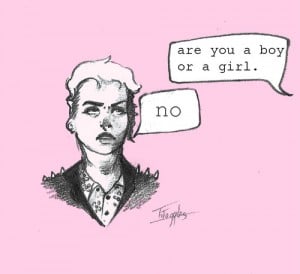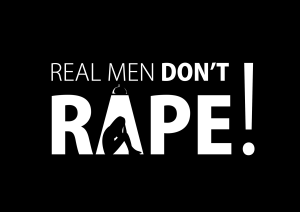
Source: iStock
I wake up with nightmares about elementary school.
I’m twenty-two years old. I’m a college graduate. I don’t live in the same city as any of the schools I attended, so I’m never forced go past my own schools or bump into my old teachers.
However, the trauma I experienced from grade school was so intense that I still wake up screaming some nights. So why this pain still?
You’d have nightmares, too, if you experienced the ableist violence, discrimination, targeting, and exclusion of the school system the way I and many disabled people have.
Not only was the school system not set up in a way to protect me from the unregulated bias of my teachers and school administrators, but it turned its head the other way when I was treated by other children in a horrifying way.
And, unfortunately, both dynamics were the norm, all the way from kindergarten to twelfth grade.
I keep hoping things have changed, that it was only bad luck that put me in the path of terrible schools, and that things are far better for disabled kids now.
But in truth, even though I went to pretty good schools and despite the fact that over a decade has passed since I was in elementary school, feedback I hear from disabled children and their parents indicates the effects of ableism in the schools really hasn’t changed all that much.
Kids are still going through the pain, the terror, and the oppression that I went through so many years ago, and that not only terrifies me – it breaks my heart.
So I’m speaking out. I’m pointing out the themes in my experience that I hear echoed in the voices of other disabled people. And I’m hoping that those who work in the schools, or advocate for school-aged children, will listen.
Because my school experience is a pretty messed up story, and I never, ever want to see it repeated with anyone else. The traumas that we subject disabled students to — or fail to protect them from — leave long lasting scars. And they teach disabled kids the way they should expect to be treated by the world.
The following list of completely preventable acts of ableism that fueled traumatic events I experienced as a disabled kid are some of the deepest scars I bear.
I really wish I could say that this was all any disabled student faced, but it’s by no means anywhere close — especially for kids with intersecting marginalized identities and circumstances.
1. The School Staff Ignored, Encouraged, or Participated In My Bullying
We all know that bullying exists in the schools. It sucks because it has incredibly terrible effects on children and it needs to end.
When I read that a girl that attended my middle school committed suicide from cyber bullying, my heart hurt. For the first time, I was grateful that my parents didn’t allow me to use social media when I was younger, because I know that had I experienced the same bullying I got in person online, the same may well have happened to me.
Because, despite a stated, school-wide anti-bullying mandate in place by teachers and administrators, they didn’t do squat to protect their students.
In fact, my worst bullies, the ones I was most terrified of, often were my teachers.
They yelled at me when I was frightened and hid under the desk because the sounds of the roof being repaired. They smiled to my face, but seethed with anger that I couldn’t detect until they exploded underneath.
They apologized to my sister – in front of me but not to me – for being extra mean to me to keep me in line because of concerns about my “bad behavior.” Simultaneously, they yelled at me for giving them “sass,” for which I was forced to apologize even though, as someone who can’t recognize my own tone of voice, I had no idea what they were talking about.
If you look at the definition of bullying, you’ll see how teachers are in a position of power from which they can be the worst bullies of all.
But even if we eliminate the bullying of the adults, there’s still how they reacted to the children. When other kids teased me, the teachers didn’t bat an eye. In fact, one teasing (read: bullying) narrative went on for years.
“Caley cooties”— as my elementary school classmates dubbed it. The concept that I was such a freak because of my ADHD and autism that to touch me was to be infected.
Think about it. Years of your classmates refusing to touch you. And your teachers just ignoring the way you’re being systematically targeted. Unfortunately, I know many of you don’t have to imagine.
But maybe you’re of the “sticks and stones may break your bones but words should never hurt you” philosophy. (Not true, but I’ll humor you here.)
Well, guess what? In high school, I really did have stones thrown at me. Not just pebbles, but stones the size of my fist.
Five of my peers targeted me for this intense episode of bullying because I was “weird.” Only one was punished.
As you can see, the way my schools handled or even caused these events was extraordinarily ableist and harmful.
2. The School Staff Fought Against Giving Me Accommodations
By law, schools are required to grant me and other disabled students here in the United States access to the curriculum. But in order to be able to access it, most of us need some accommodations.
For me, my needs were two-fold in this area. Not only did I need the accommodation of being allowed sensory stimuli to enable me to focus in class, but I also needed accommodations for my dysgraphia.
I have dysgraphia, which impacts my ability to write by hand (or get my thoughts onto paper in general). I can’t do fine motor control in my fingers, and so my letters don’t look good and take me a long time to produce, and the way I have to clamp onto a pencil to make it so I can control it at all is very painful.
As a result of this, I was eventually granted the accommodation of using a keyboard with a tiny screen in my classes and for my homework instead of having to write.
Here’s the thing, though. My teachers pushed back hard against this, not just in getting the accommodations put into my individualized education plan, but after the fact, too.
You see, in order for this system to work, I had to be able to print off my work for the teacher to read. The trick is, though, they wouldn’t allow me to print from their computers, even if the work was for their class.
I needed to print my homework and essays, all school-related, but because they didn’t want me on their computers (what did they think I was going to do, hack them?) they wouldn’t allow it and would become angry. Many times I was unable to print out my homework and then penalized for not having my homework.
I know it makes more work for teachers to accommodate me, as they told me on many occasions.
But, I mean, that’s kind of their job — to help me access my education.
Yes, they have to do a lot of crappy paperwork, but that’s not a reason to not help me. And because of the pushback I got, sometimes, I would just have to handwrite my work, defeating the entire concept of the accommodation and causing me incredible pain.
I don’t know how to explain how hard writing is for me. I will say this: When in middle school I was required to draw a free hand map of Europe, it was bad enough that I thought about breaking my own arm.
The pain seemed about the same as what I was already experiencing by trying to meet inaccessible standards for abusive teachers, and if I did then I wouldn’t have to do this anxiety of trying to get all the flipping fjords of Norway right.
Yet since I only had typing accommodations, which were not technically drawing accommodations, I had to do the assignment anyways. Ultimately I chose not to go ahead with breaking my arm.
But it was a close thing.
3. They Acted Like I Was Incompetent Because I’m Disabled
There’s a saying in the disability community: presume competence.
Our instincts are to lower the bars of presumed abilities so far below what a disabled person can actually do that this saying was created to fight back.
My experience in schools is sadly a great example of how the default is to presume incompetence.
When I was in high school, the guidance counselor refused to allow me to take Advanced Placement classes. She didn’t attempt to hide the reason why, she simply said, “ESE [disabled] students don’t take Advanced Placement classes.”
Because I’m disabled, it was automatically assumed that I and all other disabled students couldn’t handle an Advanced Placement class.
They didn’t look at my grades, which were great. They didn’t look at how I’d done in my previous Honors classes. They simply said that a disabled person can’t possibly succeed in a hard class, so we don’t allow them to take those classes.
What?!
They made me fulfill objectives no other student had to complete.
When I was in fifth grade, my mother was summoned to a school meeting. Some students’ influential parents had complained, they said, about having a disabled student in class with typical students. And it was annoying for the teachers for having to deal with my behavior (calling out of turn, constant movement – the typical for ADHD and autism) in class.
They then tried to kick me out of the school.
My mother, bless her, despite being surprise attacked and outnumbered ten to one at the meeting, fought tooth and nail for my rights.
Finally, they conceded to “merely” put me on probation.
I would have to meet a certain standard of performance, they said. If I did, I could stay. If I didn’t, I would be kicked out.
From that point on, every day they would hand me a rating card. I would take it from teacher to teacher, and they would then rate me on a behavior scale from 0-3.
It’s not great for your self-confidence and image to be rated all the time by adults; I knew a low number meant I was bad and a high number meant I was more okay.
I couldn’t do anything about it, though. I didn’t know what they wanted from me. I acted as good as I could and many days I got bad scores. Sometimes I would act in a way I felt was bad and I’d get great scores.
And eventually I just said, screw it; I learned I had no control over my own life.
“Good behavior” was a moving target, too. Every time I was pulled into see the principal they’d tell me multiple new rules I needed to follow. I couldn’t remember everything and it was never written down.
I felt like I was walking on a terrifying minefield.
It was always “act like this or else” but I didn’t understand the “this.”
But honestly the worst thing did that entire year was being very bouncy when my ADHD meds weren’t working.
As you might imagine, this discriminatory probation had massive effects on me. All of a sudden adults were very scary and not trustworthy. I was always terrified that I would be kicked out. I learned I was helpless against others.
And I fell into my first bout of deep, dark depression at the ripe old age of ten.
4. They Saw Nothing But My Weaknesses
There’s a rule here in the United States that once children reach an age of competence, they sit in on the meetings establishing their accommodations and talking about their goals.
This is something I am all in favor of, because, when done in the manner intended, this gives the student a wonderful opportunity to learn and practice self-advocacy.
Unfortunately, when done by my school team, all that happened was I was held captive in a meeting in which all my teachers were telling me how terrible I was.
“She doesn’t listen well and she didn’t complete her task to the best of her abilities,” one complained.
“She doesn’t sit well,” another added.
“She’s far behind in writing and she’s missed three assignments,” a third might say.
It basically felt like a “let’s talk about Caley and everything that’s bad about her, and remind her how different she is, and shame her for not having met her goals” time. And all I was allowed to say in my defense was “yes, sir” or “no, ma’am.”
An opportunity to teach self-advocacy was twisted into an opportunity to teach helplessness.
So, what should they have done? It’s pretty clear, I hope, that these things are incredibly messed up. So what should a school professional hoping to make their disabled students’ experiences safer?
Well, in meetings where students are included, a good rule of thumb is that if you’re going to say something negative about their abilities, you should at least include an equal number of positive things, to show them that you see their strengths.
Had my teachers said, “Oh, Caley has trouble with organizations, but she does really well with _____” I would have known that they saw me, the whole person, instead of just seeing negatives.
Moreover, universal design for education is an idea that, when done well, can really help make accessibility the norm in a school. I wish that my school had looked like this example of universal design, where all students are automatically allowed access to things that are normally accommodations, rather than a place where I had to battle to be able to access the curriculum.
But honestly, here’s the real key: Treat your disabled students like, well, your students.
We know, it’s a pain to do the extra paperwork and keep track of accommodations. But the disabled children in your class are still children, trying to navigate a world that is often pretty hostile to them and their needs.
Set out, as best you can, to make your classroom a sanctuary from ableism where your disabled students have equal opportunities to learn.
***
There are lots of resources to help you support your disabled students. You can read up on ableist phrases to eliminate, learn about neurodiversity, commit to pushing back against bullying, or even add a lesson about ableism into your curriculum.
Because if you can keep at least your interactions with a student from being ableist nightmare fuel, you’ll have helped more than you know.
[do_widget id=’text-101′]
Caley Farinas is a Contributing Writer for Everyday Feminism. She’s a recent graduate with a Bachelor’s in Public Health who writes about the effect society has on the “disabled.” Caley writes from her experience as an Autistic woman with dysgraphia and anxiety disorders. Because of these disabilities, it is hard for her to write and she gets assistance from her sister Creigh in writing/typing. That said, any words that you see attributed to her are her own, and she edits and approves anything her sister Creigh types. You can see more of Caley and Creigh’s writing on their website Autism Spectrum Explained and their Facebook page.
Creigh Farinas is a Contributing Writer for Everyday Feminism. She’s a graduate student pursuing a Master’s degree in Speech Language Pathology and who already has a B.A. in Psychology and a post-baccalaureate in Communication Sciences and Disorders. Creigh is still learning more every day, and her sister Caley reads, edits, and approves everything that Creigh writes about disabilities. You can see more of Creigh and Caley’s writing at Autism Spectrum Explained.
Search our 3000+ articles!
Read our articles about:
Our online racial justice training
Used by hundreds of universities, non-profits, and businesses.
Click to learn more
Most Read Articles
- « Previous
- 1
- …
- 30
- 31
- 32



















